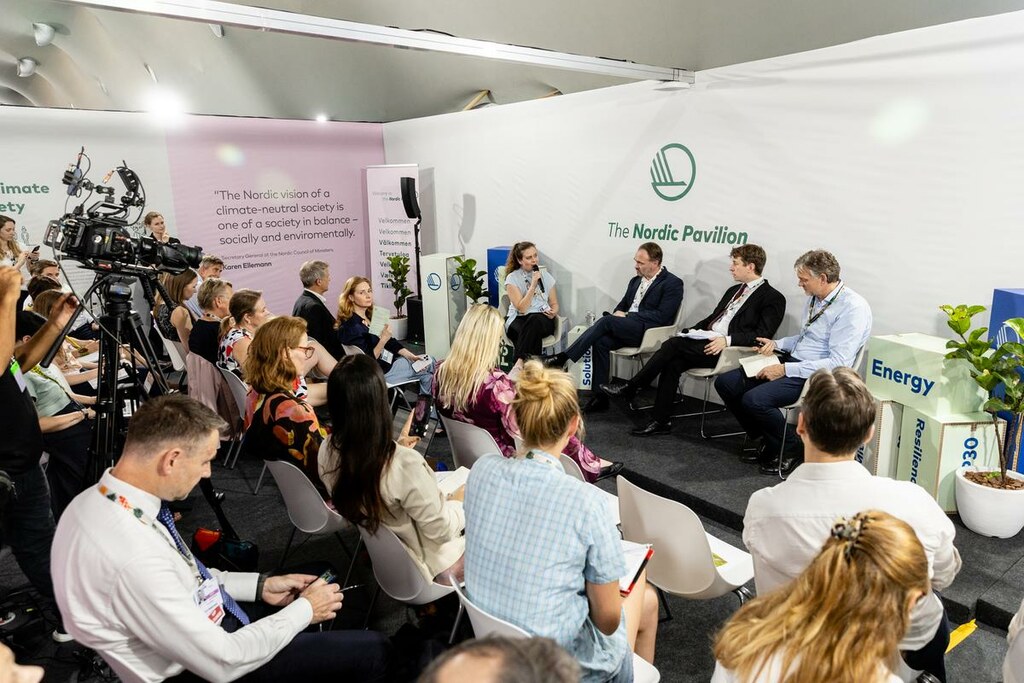
From Paris to Belém: How Nordic solutions inspire the next decade of climate action
This year, the Amazonian city of Belém in Brazil was host to COP30. Marking ten years since the Paris Agreement, the conference was shaped by a sense of urgency and…
This year, the Amazonian city of Belém in Brazil was host to COP30. Marking ten years since the Paris Agreement, the conference was shaped by a sense of urgency and a need to update the Nationally Determined Contributions (NDCs).
The energy sector is key to climate goals
The energy sector accounts for almost two thirds of greenhouse gas emissions globally and is key to reaching our climate goals. The Nordic countries are a frontrunner in the energy transition, and with a model for regional cooperation that is unique in the world, there are many examples that can inspire greater ambitions globally.
Between 13 and 15 November, Nordic Energy Research hosted four events in the Nordic Pavilion. Our focus was on showing these good examples of cooperation and implementation of policy and innovation to the stakeholders at COP30.
Energy security in a shifting world
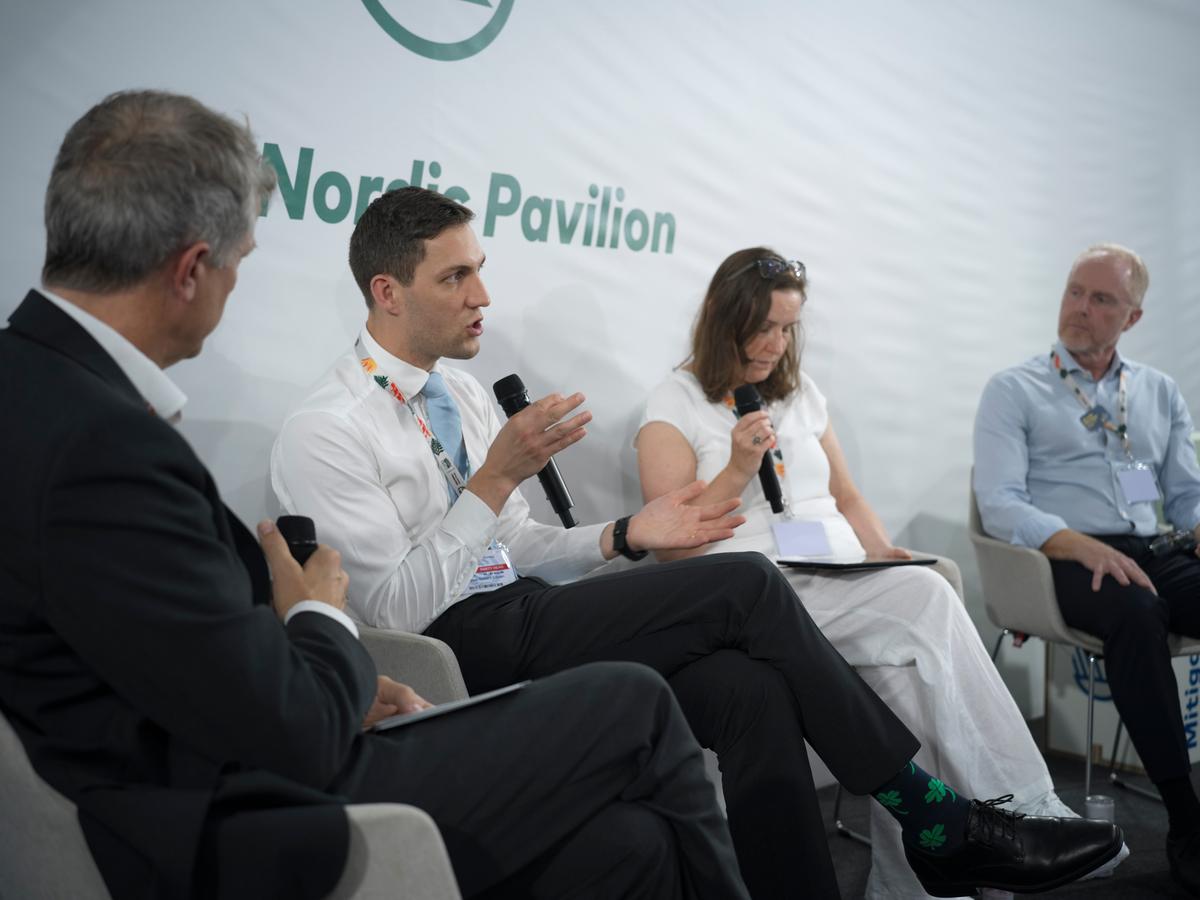
From left: Klaus Skytte, CEO, Nordic Energy Research; Andreas Bjelland Eriksen, Norway’s Minister for Climate and Environment; María Erla Marelsdóttir, Iceland’s Climate Ambassador; Mattias Frumerie, Sweden’s Climate Ambassador. Photo: Andy Sewell/norden.org
Climate risks, geopolitical tensions, and volatile markets underscore the importance of energy resilience. In this high-level session we brought together representatives from Norway, Iceland, and Sweden to discuss how they tackle energy security, sustainability, and affordability while meeting NDCs. We explored key technologies and policies that boost energy resilience. Finally, we discussed how regional cooperation – like the Nordic model – can inspire others on the path to a secure and sustainable energy future.
Watch the session here.
Beyond climate neutrality
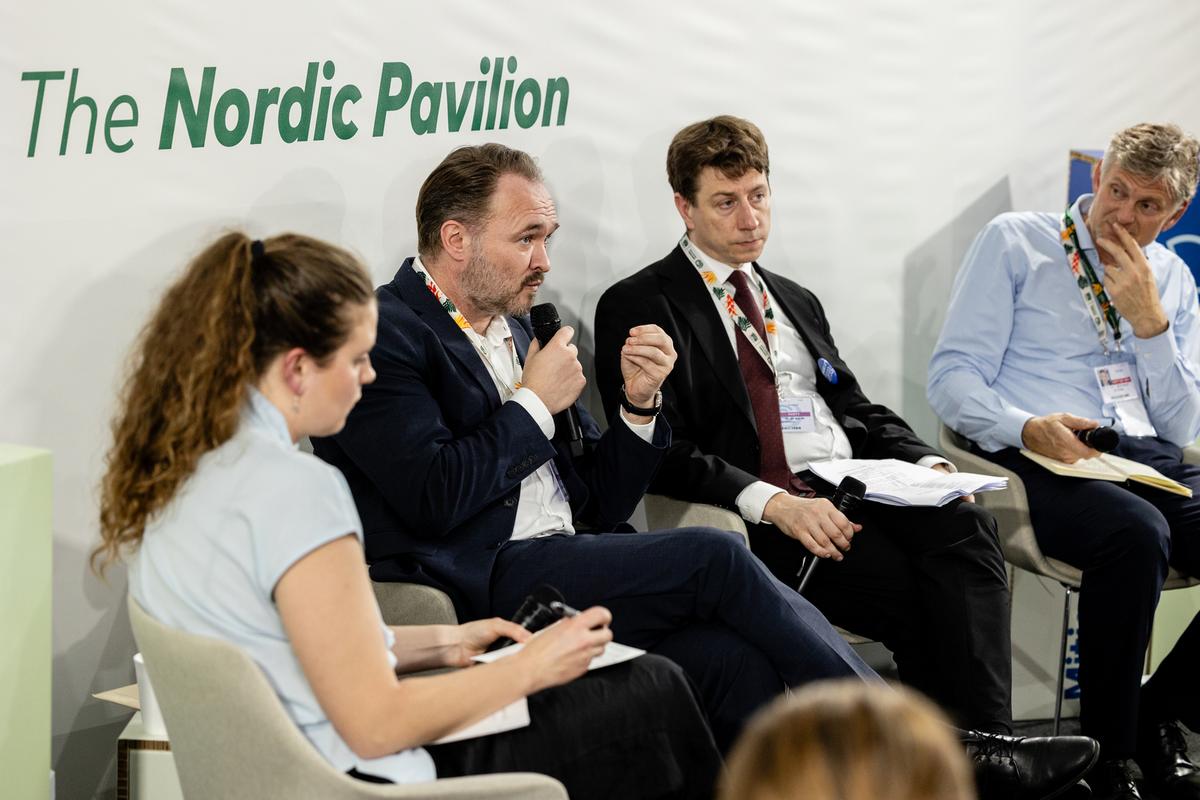
From left: Johanna Hlin Audunsdóttir, Director of Climate and Sustainability, Landsvirkjun; Dan Jørgensen, European Commissioner for Energy and Housing; Sakari Puisto, Finland’s Minister of Economic Affairs; Ole Thonke, Denmark’s Climate Ambassador. Photo: Joel Sheakoski/norden.org
The EU, Finland, and Denmark are all working toward climate positivity. This session focused on key policies, technologies, and lessons learned. Discussions addressed how countries and the EU translate ambitious goals into action, the most effective measures for reducing emissions beyond net-zero, and what Nordic cooperation can teach the world. Finally, we asked: What is the most critical step for advancing climate-positive outcomes by 2030 and beyond?
Watch the session here.
Hydrogen valleys across regions
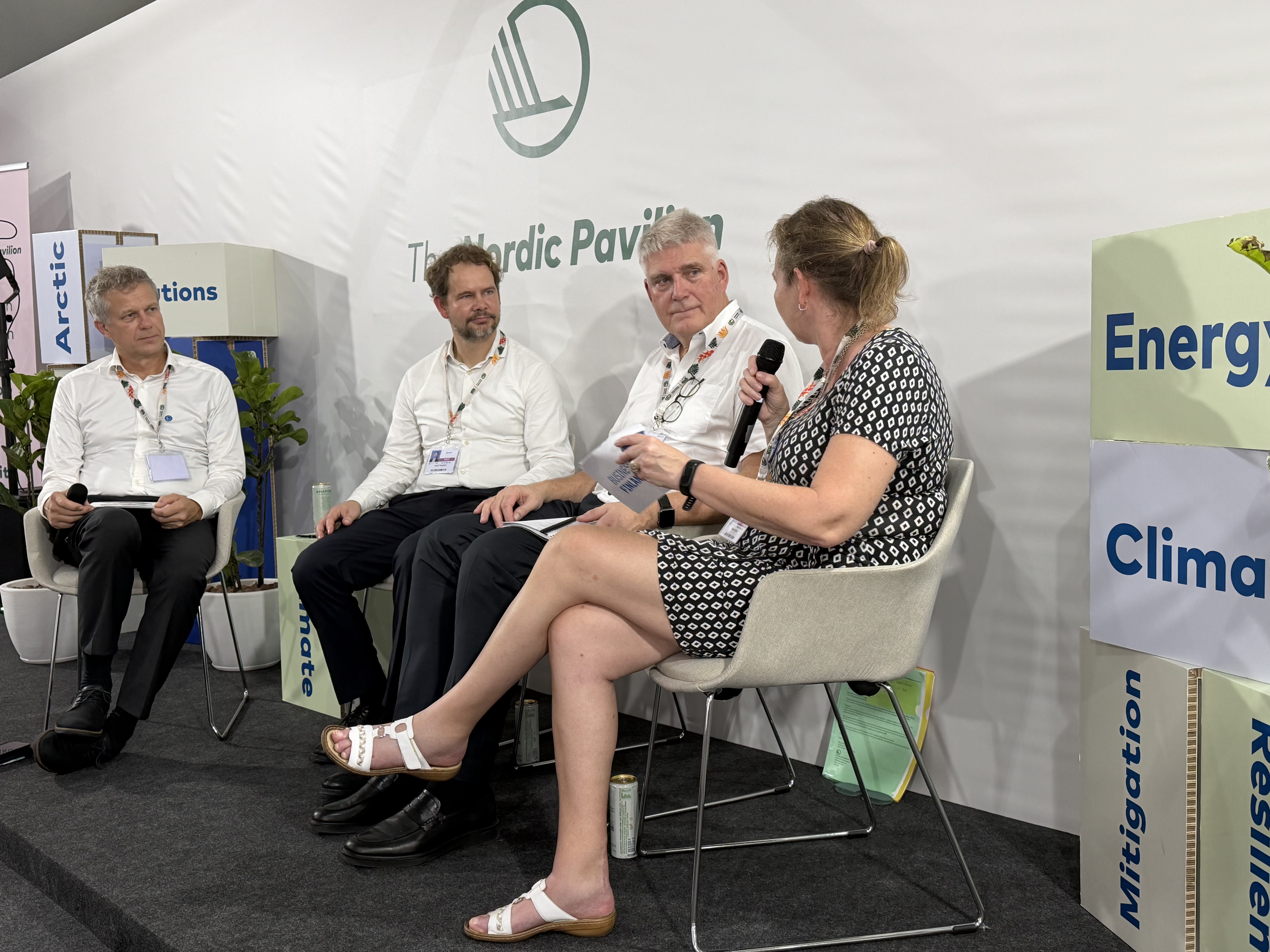
From left: Klaus Skytte, CEO, Nordic Energy Research; Jakob Haugaard, Director at the Danish Maritime Authority; Nils Røkke, Executive Vice President Sustainability, SINTEF, Norway; Helena Sarén, Head of Zero Carbon Future Mission, Business Finland.
The Nordic countries are advancing hydrogen made from renewables as a cornerstone for industry, transport, and maritime decarbonisation. In the session we discussed national strengths, scaling electrolysis, and cost reduction, as well as the role of Hydrogen Valleys in building integrated value chains. The dialogue focused on challenges, cross-border collaboration, and how hydrogen can move from vision to implementation in climate commitment with the maritime sector identified as a key to progress.
Watch the session here.
Powering equality
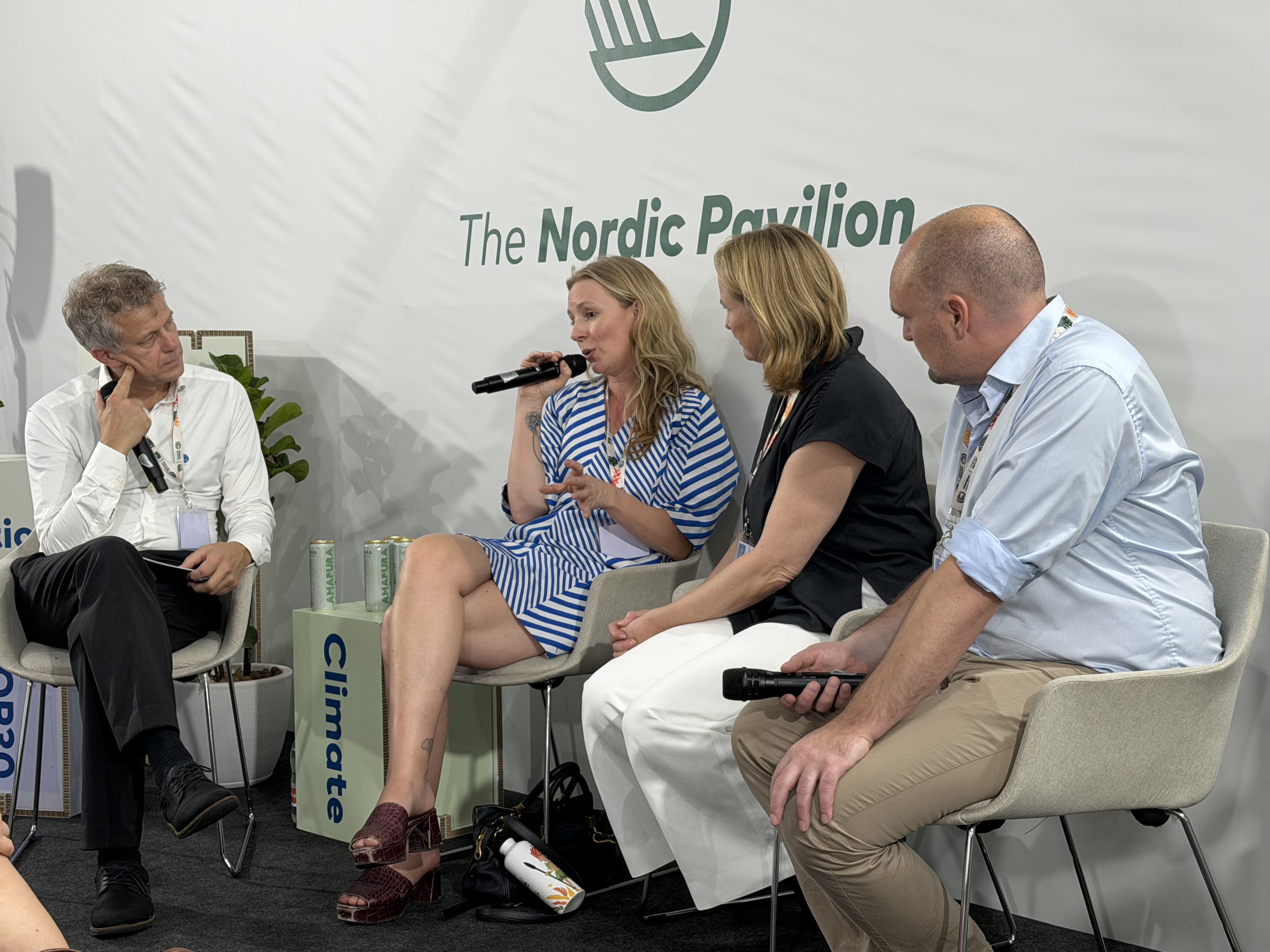
From left: Klaus Skytte, CEO, Nordic Energy Research; Lea Wermelin, Member of Parliament, Denmark; Astrid Rusås Kristoffersen, Director Research & Development, DNV, Norway; Morten Dyrholm, Group Senior Vice President, Marketing, Communications, Sustainability and Public Affairs at Vestas Wind Systems A/S, Denmark.
Women represent half the workforce in the Nordics, yet the gender gap in the energy sector is persistent. Together with Nordic political and business representatives, we explored why diversity matters for the green transition, barriers to inclusion, and how equality can drive sustainability and innovation. Discussions focused on practical strategies, the business case for equality, and how Nordic leadership can inspire global change.
Watch the session here.
